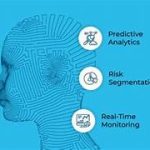Predictive Analytics for Stock Market Trends Using AI: A Game Changer in Financial Investments
The stock market has long been a beacon of both opportunity and volatility, attracting investors from all walks of life. Predicting market trends has been one of the most challenging aspects of investment strategy, traditionally relying on fundamental analysis, technical indicators, and human intuition. However, the rapid evolution of Artificial Intelligence (AI) and machine learning has transformed how market trends are analyzed and predicted. Predictive analytics powered by AI is revolutionizing stock market forecasting, enabling investors to make more informed decisions and potentially maximize their returns.
In this article, we delve into how predictive analytics leverages AI to forecast stock market trends, the methodologies employed, key benefits, challenges, and the future of this transformative technology.
What is Predictive Analytics in Stock Market Forecasting?
Predictive analytics involves the use of statistical algorithms, machine learning models, and big data analysis to predict future outcomes based on historical and real-time data. In the context of the stock market, it aims to identify patterns, correlations, and trends that can signal future price movements of stocks, indices, or other financial instruments.
AI enhances predictive analytics by processing vast datasets, detecting subtle patterns, and adapting to new information in real-time, offering unprecedented precision and speed in stock market forecasting.
How AI is Applied in Stock Market Predictive Analytics
AI employs a variety of methods and technologies to predict stock market trends. Key approaches include:
1. Machine Learning Models
Machine learning (ML) algorithms are at the core of AI-driven predictive analytics. These models learn from historical stock data, identify patterns, and improve their predictions over time. Common ML techniques include:
- Regression Analysis: Predicts continuous variables, such as stock prices.
- Classification Models: Categorize stocks into buy, sell, or hold.
- Reinforcement Learning: Models learn optimal trading strategies through trial and error.
2. Natural Language Processing (NLP)
NLP techniques analyze unstructured text data, such as news articles, earnings reports, and social media posts. Sentiment analysis is a key application, determining the market sentiment and its potential impact on stock prices.
3. Neural Networks
Deep learning models, such as artificial neural networks (ANNs), are particularly effective in stock market prediction due to their ability to identify complex patterns in large datasets. Recurrent neural networks (RNNs) and Long Short-Term Memory (LSTM) models are used to analyze time-series data and predict future trends.
4. Big Data Analytics
AI systems process massive volumes of financial data, including historical prices, trading volumes, and macroeconomic indicators. This holistic analysis provides a comprehensive view of the factors influencing market trends.
5. Real-Time Data Processing
AI-powered systems analyze real-time data streams, such as live stock prices and breaking news, to generate instant predictions and alerts.
6. Feature Engineering
AI models automatically select and create the most relevant features (variables) for predicting stock movements, improving model accuracy and reducing noise.
Applications of AI in Stock Market Predictive Analytics
- Short-Term Trend Prediction
AI analyzes intraday data to predict short-term price movements, assisting day traders and high-frequency trading firms. - Long-Term Investment Strategies
By analyzing macroeconomic indicators, financial reports, and historical trends, AI supports long-term investment planning. - Risk Management
AI models predict potential market downturns or individual stock risks, enabling investors to hedge their portfolios effectively. - Market Sentiment Analysis
Sentiment analysis tools process social media, news, and investor sentiment data to gauge market moods and predict their influence on stock prices. - Algorithmic Trading
AI powers algorithmic trading strategies, which execute trades based on predefined criteria at lightning speed, optimizing profitability. - Portfolio Optimization
AI helps investors construct and manage diversified portfolios by predicting asset performance and minimizing risks. - Identifying Market Anomalies
AI detects unusual trading patterns or price movements that may indicate market manipulation or rare opportunities.
Benefits of AI in Predictive Analytics for Stock Markets
1. Accuracy and Precision
AI models analyze vast datasets and detect patterns with greater accuracy than traditional methods, reducing the chances of human error.
2. Real-Time Decision Making
AI systems process data in real-time, enabling investors to respond quickly to market changes.
3. Handling Complex Data
AI can analyze and integrate structured and unstructured data, such as financial statements, economic indicators, and social media content, providing a comprehensive analysis.
4. Adaptability
Machine learning models continuously learn and adapt to new market conditions, ensuring predictions remain relevant.
5. Cost Efficiency
AI automates the analysis process, reducing the need for large teams of analysts and lowering operational costs.
6. Enhanced Risk Management
AI identifies potential risks and suggests strategies to mitigate them, protecting investments from unforeseen market events.
7. Inclusivity
AI democratizes stock market analysis, making advanced forecasting tools accessible to retail investors, not just institutional players.
Challenges in Using AI for Stock Market Prediction
While AI offers significant advantages, it is not without its challenges:
1. Data Quality and Availability
AI models require high-quality, comprehensive data to function effectively. Missing or inaccurate data can skew predictions.
2. Market Volatility
Unpredictable events, such as geopolitical crises or natural disasters, can disrupt even the most advanced AI predictions.
3. Overfitting
AI models may become overly specialized to historical data, reducing their ability to generalize to new market conditions.
4. Regulatory and Ethical Concerns
The use of AI in trading raises ethical questions about fairness and market manipulation. Regulatory compliance is also a critical consideration.
5. Interpretability
AI models, especially deep learning systems, often function as “black boxes,” making it difficult for users to understand how predictions are made.
6. High Initial Costs
Developing and deploying AI systems require significant investment in infrastructure, expertise, and data acquisition.
Case Studies: AI in Stock Market Predictive Analytics
- Kensho
Kensho, an AI-powered analytics platform, uses machine learning to predict market trends by analyzing economic events and their impact on stock prices. - Numerai
Numerai is a hedge fund that crowdsources stock market predictions from data scientists using AI models. The collective intelligence approach enhances prediction accuracy. - Bloomberg’s AI Tools
Bloomberg employs AI to provide real-time market insights and predictions, helping traders make informed decisions. - Renaissance Technologies
This hedge fund uses AI-driven quantitative models to predict stock price movements, consistently outperforming traditional strategies.
Future of AI in Stock Market Predictive Analytics
The future of AI in stock market prediction is promising, with several advancements on the horizon:
- Explainable AI (XAI)
Efforts to make AI models more transparent and interpretable will enhance trust and regulatory compliance. - Quantum Computing
The integration of quantum computing with AI could exponentially improve the speed and accuracy of predictive models. - Personalized Investment Strategies
AI will provide tailored investment advice based on individual risk tolerance and financial goals. - Integration with Blockchain
Blockchain technology can enhance data integrity and transparency, further improving AI predictions. - Global Standardization
As AI adoption grows, efforts to establish global standards for its application in stock market prediction will gain momentum.
Conclusion
AI-powered predictive analytics is reshaping stock market forecasting, offering investors a competitive edge in navigating the complexities of financial markets. By leveraging vast datasets, advanced algorithms, and real-time analysis, AI enables more accurate, efficient, and informed decision-making.
While challenges such as data quality, regulatory concerns, and market volatility persist, the continued development of AI technologies promises a future where stock market predictions are more reliable and accessible than ever before. For investors and financial institutions alike, embracing AI-driven predictive analytics is no longer a luxury but a necessity in the rapidly evolving world of finance.


